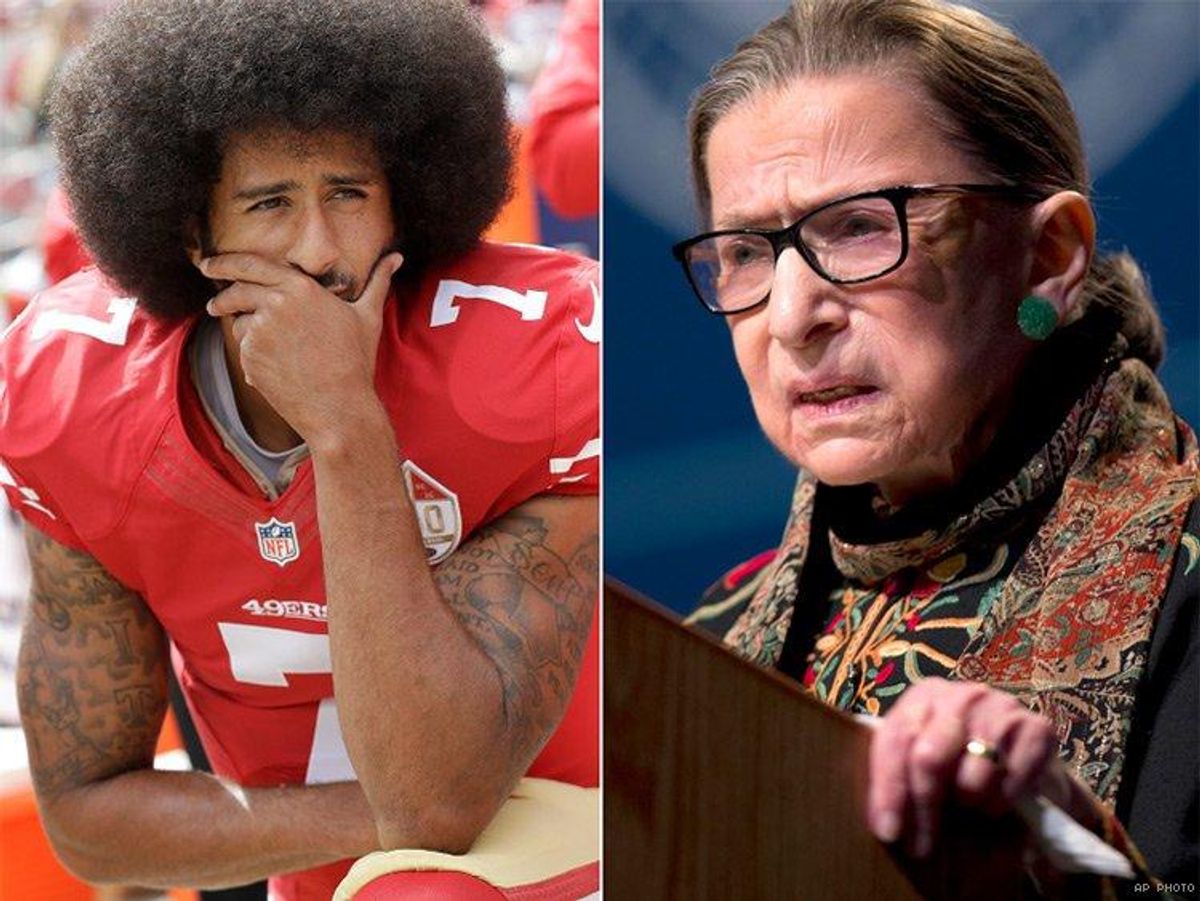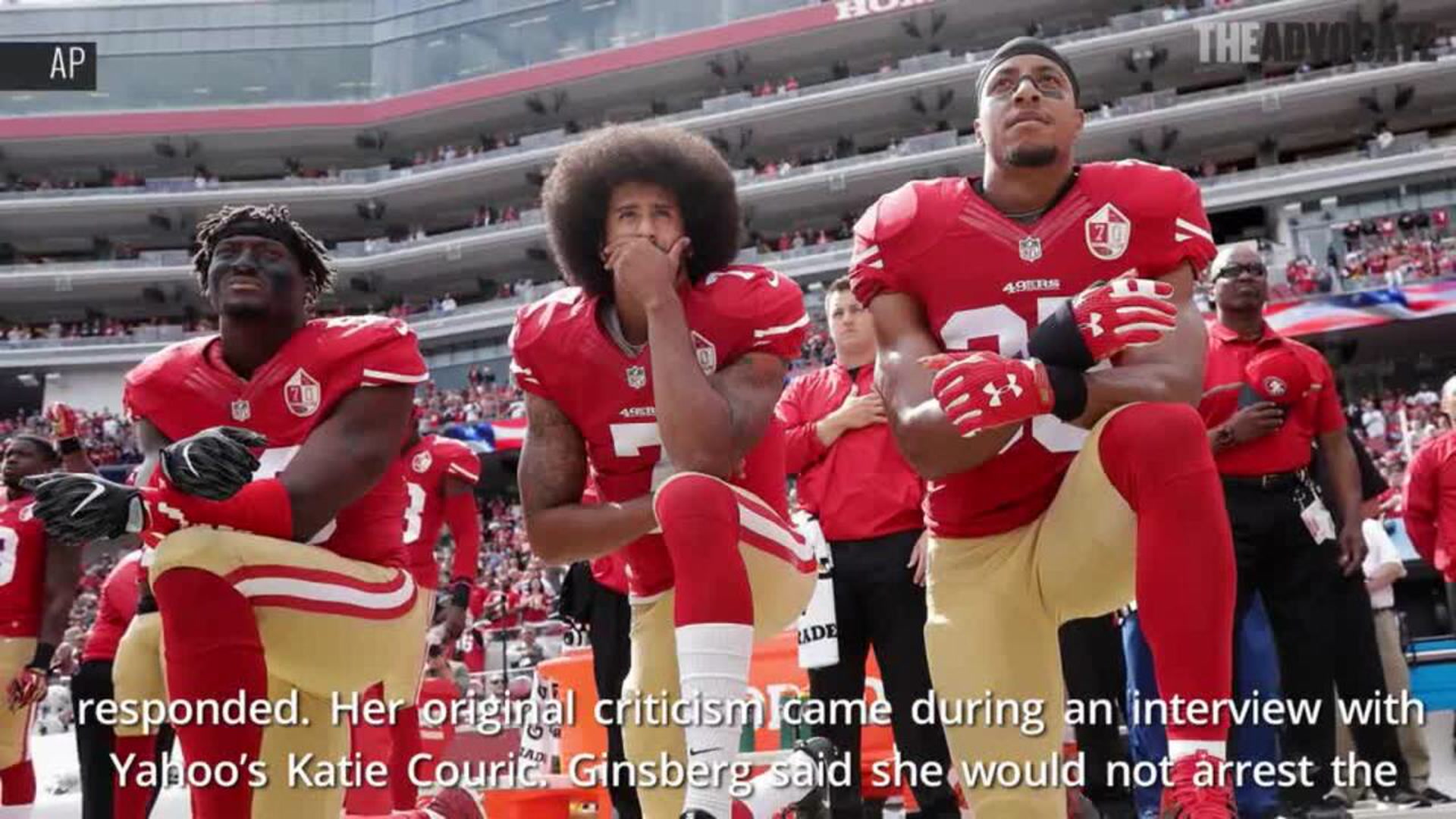Supreme Court Justice Ruth Bader Ginsburg apologized Friday for comments she made against San Francisco 49ers football player Colin Kaepernick.
"Barely aware of the incident or its purpose, my comments were inappropriately dismissive and harsh. I should have declined to respond," Ginsburg said in a statement made to media on Friday.
On October 11, Ginsburg told Katie Couric of Yahoo News what she thought about athletes protesting against the National Anthem, and she didn't hold back in her response. "I think it's really dumb of them," the veteran justice told Katie Couric. "Would I arrest them for doing it, no."
When the internet got word of the interview, it became clear that Ginsburg made a notoriously bad judgment call.
After apologizing on Friday, Ginsburg didn't say whether she believed athletes should be arrested for such protests, nor did she say whether she supported or understood their purpose.
Kaepernick responded to Ginsburg's initial comments in an interview saying it was "disappointing to hear a Supreme Court justice call a protest against injustice and oppression 'stupid, dumb.'" He likened the comments to previous instances of white critique of black protest that used similar terminology and avoided the real issue. "As I was reading that, I saw more and more truth how this has been approached by people in power and white people in power in particular," said Kaepernick.
The popular jurist known for her sharp remarks got in similar hot water when she made comments about Donald Trump's fitness to be president. After calling the candidate a "faker," she later recanted saying she regretted the statements.
As more athletes followed Kaepernick's lead, praise and criticism of his activism and the motives behind it have fueled discourse for weeks. Some questioned Kaepernick's ability to protest because of his wealth (he decided to pledge a donation of $1 million to Bay Area social justice organizations, which his team is matching, in addition to donating jersey sales) or his biracial identity (some erroneously claiming that being raised by white parents somehow negated his black experience).
But as Kaepernick and others noted, whenever power is challenged, the response is to be dismissive.
The idea of protest for black lives has always been controversial, no matter the method. Whether demonstrating in the streets, in public places, in government offices or on the game field, advocacy for black lives is many times viewed as impolite, out of place or improper.
More importantly than the kneeling, or even the spread of that type of protest, is the visibility it brings and the message it sends. And even Supreme Court justices are thinking twice about what they say about this new wave of social justice activism.



















































































Here's our dream all-queer cast for 'The White Lotus' season 4